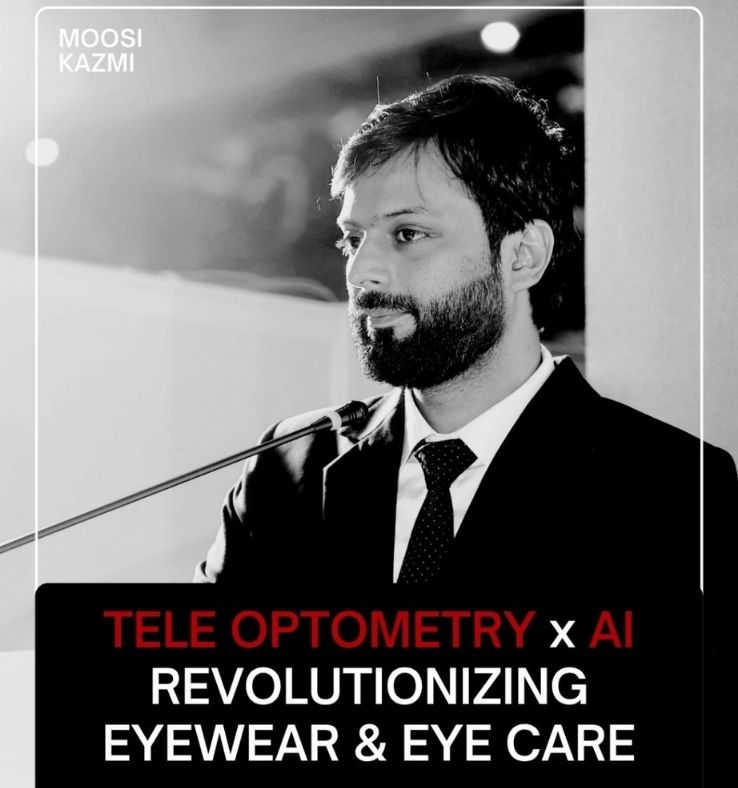The Language of Eyes Expressions, Gestures, and the Importance of Eye Health
.jpg)
Authorized by: Madhur Gupta, Editor, Optician India From the heart with no scientific or research value
The eyes are often referred to as the windows to the soul, and for good reason. They convey emotions, intentions, and thoughts with unparalleled precision, forging connections that transcend words. Beyond their role in communication, the eyes are also vital indicators of our overall health, revealing subtle signs of underlying conditions that can impact our well-being.
The Unspoken Dialogue: Eye Gestures and Expressions
2025-07-15T11_27_31.jpg) |
Our eyes tell stories that words often cannot. Every blink, gaze, and squint conveys a message, influencing how others perceive us and interact with us. Understanding the language of the eyes can deepen our connections with others and foster empathy.
- The Power of the Gaze: Direct eye contact conveys confidence, sincerity, and interest, while averting the gaze can signal shyness, guilt, or discomfort
2025-07-15T11_29_08.jpg) |
- Blinking Patterns: Frequent blinks can indicate nervousness or stress, while prolonged blinks may suggest fatigue or boredom.
- Raised Eyebrows: A quick eyebrow raise can signal surprise or recognition, while slightly raised eyebrows paired with a smile can convey friendliness.
The Emotional Spectrum of Eye Expressions
The eyes are capable of conveying a wide range of emotions, each leaving a lasting impression on those around us.
2025-07-15T11_35_55.jpg) |
2025-07-15T11_37_00.jpg) |
Happiness: Sparkling eyes and crow's feet denote genuine joy and warmth.
- Sadness: Downturned lids and a lack of sparkle can signal sorrow and vulnerability.
- Anger: Intense stares or narrowed eyes can project hostility and frustration.
- Love and Affection: Soft, lingering gazes can express warmth and intimacy.
Eyes: The Window to Health
Beyond their role in communication, the eyes can reveal underlying health conditions that require attention.
.jpg) |
- Redness: May signal dryness, irritation, or allergies.
- Yellowish Tint: Can be a sign of liver issues or other systemic health problems.
- Dilated Pupils: May be a response to certain medications or neurological conditions.
The Importance of Routine Eye Examinations
Regular eye exams are crucial for maintaining eye health and detecting potential issues early.
- Early Detection of Eye Diseases: Conditions like glaucoma, cataracts, and macular degeneration can be detected and treated more effectively with early diagnosis.
- Monitoring Vision Changes: Regular eye exams can help identify changes in vision and prevent discomfort or complications.
- Systemic Health Indicators: Eye examinations can reveal signs of systemic health issues like diabetes, hypertension, or high cholesterol.
Tips for Maintaining Eye Health
By adopting healthy habits and being mindful of our eye health, we can preserve the beauty and functionality of our eyes.
- Healthy Nutrition: Include leafy greens, carrots, and omega-3 fatty acids in your diet to support eye health.
- Protective Eyewear: Wear sunglasses to shield your eyes from harmful UV rays.
- Limit Screen Time: Follow the 20-20-20 rule to reduce eye strain.
A Call to Action: Prioritizing Eye Health
.jpg) |
Our eyes are irreplaceable assets that deserve our care and attention. By prioritizing eye health and scheduling regular eye exams, we can ensure that our eyes continue to serve us well into the future. Make the commitment to prioritize your eye health today.

.jpg)
.jpg)
.jpg)

.jpg)
.jpg)


1.jpg)



.jpg)
.jpg)



_(Instagram_Post).jpg)
.jpg)
_(1080_x_1080_px).jpg)


with_UP_Cabinet_Minister_Sh_Nand_Gopal_Gupta_at_OpticsFair_demonstrating_Refraction.jpg)
with_UP_Cabinet_Minister_Sh_Nand_Gopal_Gupta_at_OpticsFair_demonstrating_Refraction_(1).jpg)

.jpg)








.jpg)



.png)




